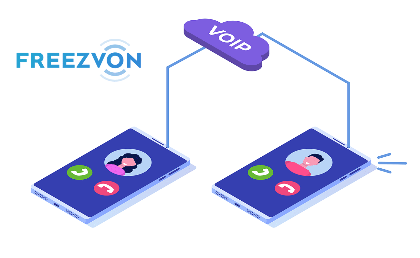It’s predicted that by 2025, 70% of the workforce in the USA will be working remotely at least 5 days a month, Vox reports. Remote call center agent is among the most in-demand job vacancies. A lot of companies that worked exclusively with local markets began to expand their online presence with the start of the pandemic. Entrepreneurs planning to create a call center want to ensure the smooth running of operation that empowers employees to focus their attention on customers. And for a successful launch, it's important to think through all the processes of remote work of managers and use flexible services of IP telephony.
Challenges in Organizing a Remote Call Center
The most cost-saving and easy solution for launching your call center is virtual IP telephony. It will help to solve the following organizational problems:
- How to ensure diligent attitude to work of remote agents;
- How to lower the risk of confidential company's data leak;
- How to overcome difficulties in remote employee training and to track their productivity;
- What hardware is required for a successful call center launch.
IP telephony is built on the use of virtual numbers, use of which will help you arrange the client service for customers from different regions or countries at a minimal cost. With VoIP, you can be assured that call center agents are equipped with the necessary services for customer service. And there are tools for managerial staff that help control the quality of work of the remote employees.
How to Organize Call Center Operations by Using Cloud VoIP Telephony?
To satisfy ever-growing customer expectations, you have to invest funds in flexible tools for quick adaptation of employees to remote work in a call center. With a virtual PBX, agents will be able to freely communicate with customers and with each other. A telephone station doesn't have to be located on-premise - it's built upon cloud technology and accessible through a web application.
Benefits of using a virtual PBX for call centers:
- Simple to manage. Call management, call queue, management of call forwarding is done through an intuitive application. Remote call center agents will be able to get the hang of it without effort;
- An abundance of tools in one package for a reasonable price. Virtual PBX contains access to call management and services of voicemail, voice greeting, IVR, conference calls, and other services. A company can use a set of telecommunication tools without delays;
- Coordinated call center teamwork. You can form a 24/7 call center by setting up a flexible work schedule for agents. You set up call forwarding to SIP accounts of the agents, depending on their schedule;
- Availability for customers from different countries. If a business focuses on several countries, you can hire a staff of remote agents with language skills for the regions in question. It would make communication more convenient for customers;
- Tracking agent productivity and call monitoring. Managerial staff will have various tools for control of the remote agents' work at their disposal - statistics with detailed information about the quantity of outgoing and incoming calls, call duration, costs, with a possibility of filtering by the agent's SIP account. And call recording service could be used to rate how an agent communicates with customers;
- CRM integration. If you combine a virtual PBX and a CRM system, call data could be interpreted to form KPI for each agent. Agents will be able to provide personalized service for repeat customers.
Rules Development for Remote Work of Call Center Agents
Remote work demands good self-management skills from a person. But it's not always possible to gauge how ready an employee is for intensive work in a call center. That's why it's necessary to develop guidelines that help remote agents to adhere to standards of customer service.
That facets of work should be established in a detailed guideline:
- Safety and confidentiality of remote access. Even if employees had the experience of working from home, it's better to provide them with instructions on how to access the virtual PBX application, get access to documents, CRM, as well as what to do in case of any problems;
- Equipment and software. To avoid any outages in call center operations, you need to ensure remote agents have a stable and secure internet connection, whether softphones and other applications your company uses are installed right. Provide the instructions on how the agents could test their apps before starting the work;
- Reduction of cybersecurity risks. Because employees process the personal information of customers, it needs to be protected. You can make a checklist of every action required to be done before ending the working shift;
- Channels of communications with the team leader. Determine optimal apps for team communication, and add instructions on how to contact the team leader and people to contact in case of force majeure. Including extensions created within your virtual PBX for the fastest connection;
- Training. Add a link for the training section and FAQ list where agents can find information for resolving customer issues. Make a regular schedule for agent training.
With such clear instructions, agents will have an easier time working from home and hitting their goals. And virtual IP telephony will provide professional tools for effective customer support.
How to Open Call Center from Scratch
Freezvon will help to launch a call center, making a virtual PBX setup within three days possible. We recommend choosing virtual Toll-Free numbers so your clients would be able to get a consultation from your support agents without delay. They are multichannel, and several agents at the same time will answer the calls. Depending on business requirements, additional VoIP telephony services could be connected.


